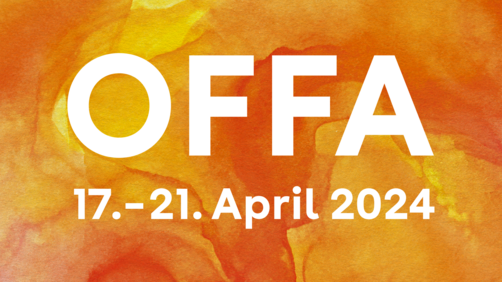Events - 03.05.2018 - 00:00
Panel discussion: The future of work
Panel discusses the future of work and addresses solutions to 21st Century challenges.

3 May 2018. Gathering to discuss the main topic at the 48th St.Gallen Symposium, “Beyond the end of work”, participants saw Marcela Escobari, a senior advisor and Visiting Fellow at the Brookings Institution set the stage. From her perspective, she is convinced that we, as governments, educational institutions, and industry, need to have a better sense of urgency to keep up with the fast-changing world of work.
Even though a recent poll of St.Gallen Symposium Leaders of Tomorrow shows that 89% of them are optimistic about the future of work and 87% of them believe that Artificial Intelligence will have a positive effect on their working lives, she believes that we are not reacting quickly enough to the effect of technological change on our work culture. Escobari points out that while the U.S.A. is enjoying record levels of employment, the statistics do not reveal the true picture. She cites statistics that show that incomes for male workers in the U.S. have fallen over 28% in the last four decades. Even more affected are male workers without a post-secondary education; 68% of them have seen their wages fall since 1960. She also noted that in 1960, 6% of the working-age population had given up on finding employment. In 2009, that number had increased to 18%. With this gloomy outlook, Escobari turned to her fellow panellists for encouraging news.
As a founder of DRPM Group and H Robotics, a tech company based in London that is developing cutting-edge drone technology, Philippa Malmgren stated that she rarely gets the opportunity to hire the people she wants. She says that while she looks for candidates with PhDs from leading institutions, she is constantly disappointed when these employees lack flexibility and vocational know-how in their skill-set. They can make a drone fly perfectly in a computer simulation, but they cannot weld the electronics into it. We need advanced levels of vocational training built into our educational system like Germany and Switzerland, she said. This will help potential workers be ready for the work force.
Professor Guy Standing is a professorial research associate at the University of London. He sees a problem with what we define as work, especially in the 21st Century. He describes a situation, first identified by an economist in the 1920s, in which a man hires a woman to cook and clean for him. By doing so, the unemployment numbers drop, and economic growth goes up. If sometime later they get married, the unemployment rate goes up and economic growth goes down. Standing believes that the way we calculate economic work statistics has practically no value and we need to redefine these parameters.
Markus Wallenberg is the Chairman of the Board of the Board of directors for SEK, a Scandinavian Bank, and is the fifth generation of his family to work in the family business. His perspective on the future of work tended to focus on the long view. He pointed out that his grandfather and great-grandfather also were business leaders in a time when there was enormous technological advancement. One way Sweden has managed to successfully weather change is by investing in both technology and people. “In Sweden, we are dependent on exports, which means we are dependent on innovation. But innovation is not only found on the product side, but it is also found in the way you do things.”
Wallenberg believes that Big Data and Big Tech will have the greatest influence on big companies. We can prepare ourselves for this change by involving government, education and industry in the training and re-training of workers.
While it seems that the end of work may not be a reality in our lifetimes, the panellists all agree that making sure that we start preparing for this massive shift now is of utmost importance.
More articles from the same category
Discover our special topics











